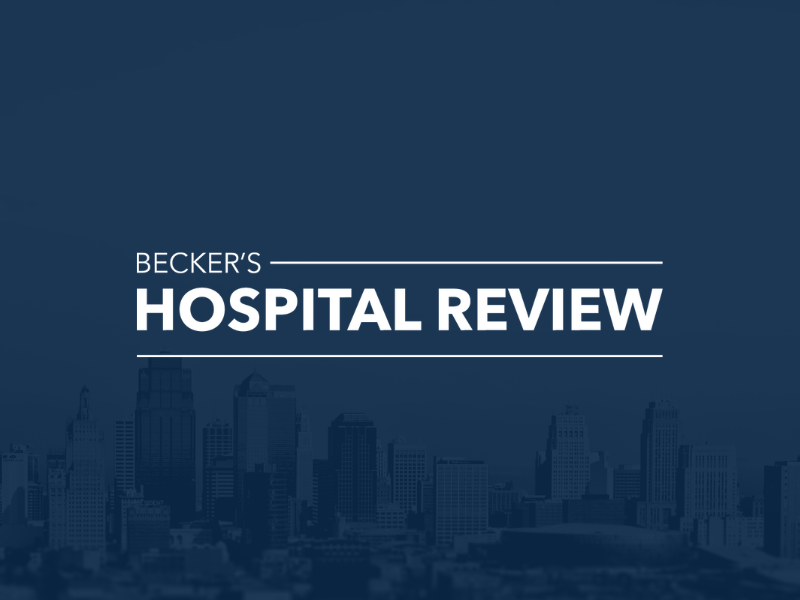- Joined
- Sep 20, 2004
- Messages
- 6,007
- Reaction score
- 6,711
Post everything here related to 2020 - 2021 Nephrology Fellowship Application. Good luck to All!

Hi! Has anyone started receiving interview invites yet? Does anyone know how the Virtual interviewing works or has any helpful links? Please post below.
Also, the invite I have received says its gonna be an "All day" event. So any thoughts on how a virtual interview be "All day"?
brave man. I was worried nobody would apply this year. PM for gritty details that the academics don't want you to know about this specialty.
I’m at vandy and finishing now. Highly recommend.
For those who think nephrology is dead, I would say the problem lies with the individual.
Every fellow in my class has had at least 2 decent offers so far. Highly recommend going to the nephrology business leadership university as a second year to learn about joint ventures etc.
lots of passive income opportunities, academic life is pretty good but private can afford a lot more money (even 300-500).
I have been highly recruited as have my co fellows
Covid? No issue! Our patients still needed dialysis and covid Is directly toxic to the kidneys. We’ve remained busy and making rvus while GI had their colonoscopies on hold etc.
anyway, don’t be disheartened. I’m very happy where I am and feel like I got good training without being overworked. Other programs may work you much harder but we have a reasonable schedule here (most of our services are off by 1 pm as we have an afternoon fellow). Call only once a week on average as a first year and only 16 calls the whole of second year. 6 months of research during your second year. Great mentorship. Great PD who advocates for us.
I can hear the crickets chirping in this thread! Anyone got any invites from Texas, Arizona, Utah, Colorado? Please share.
I've read all the warnings from this thread and from all the previous ones. The thing is, right now, it's the start of interview season. Residents, including me, have worked hard to polish their CV, get publications, work with nephrologists to get LORs and are now anxiously waiting for interview invites and refreshing their emails every hour in hopes of new emails. So we've put in plenty of effort up to this point in hopes of getting to the best programs. So I'm not about to drop it all right now while I have interviews to go to for the next 2 months. I also stopped reading the doom and gloom threads because I don't want to have a jaded attitude on an interview. It's also not fair to the interviewers who are busy nephrologists that are taking the time to find good candidates and fellows. Do I want to hear about the less glorious aspects of nephrology? Actually, yes I do, but not right now. When I'm done with interviews and ranking programs, I'd absolutely want to know the the good and the bad of the specialty. I'd like to weigh all my options before I commit myself to another 2 years of working 70-100 hours a week on a tiny salary. And if I'm convinced, my rank list will be empty and I can go on my merry way as a hospitalist.Maybe you should take the chirping sound as a Warning, and not as an opportunity.
I can hear the crickets chirping in this thread! Anyone got any invites from Texas, Arizona, Utah, Colorado? Please share.
I can hear the crickets chirping in this thread! Anyone got any invites from Texas, Arizona, Utah, Colorado? Please share.
I've read all the warnings from this thread and from all the previous ones. The thing is, right now, it's the start of interview season. Residents, including me, have worked hard to polish their CV, get publications, work with nephrologists to get LORs and are now anxiously waiting for interview invites and refreshing their emails every hour in hopes of new emails. So we've put in plenty of effort up to this point in hopes of getting to the best programs. So I'm not about to drop it all right now while I have interviews to go to for the next 2 months. I also stopped reading the doom and gloom threads because I don't want to have a jaded attitude on an interview. It's also not fair to the interviewers who are busy nephrologists that are taking the time to find good candidates and fellows. Do I want to hear about the less glorious aspects of nephrology? Actually, yes I do, but not right now. When I'm done with interviews and ranking programs, I'd absolutely want to know the the good and the bad of the specialty. I'd like to weigh all my options before I commit myself to another 2 years of working 70-100 hours a week on a tiny salary. And if I'm convinced, my rank list will be empty and I can go on my merry way as a hospitalist.
With all due respect, what is the end goal for all this doom and gloom? Is it to phase out nephrology as a specialty? Most other specialties are getting more applicants and spots per year while nephrology is stagnant.
Seems like no one is applying but for what it's worth these are the ones I got as an IMG who needs visa:
MGH/BWH
BIDMC
BMC
Tufts
Brown
University of Miami
George Washington University
UPMC
has anyone interviewed this cycle with HUP? I just finished BU zoom interview. really friendly ppl. It was 2x 45 mins interviews with faculty. 1 long presentation about program. thanks appreciate any help
has anyone interviewed this cycle with HUP? I just finished BU zoom interview. really friendly ppl. It was 2x 45 mins interviews with faculty. 1 long presentation about program. thanks appreciate any help
I'll just give it to you straight. All fellowship programs are super nice on interviews and will tell you how great the specialty is doing and how great their grads are doing. Their priority is to get their night calls covered and will saying anything to get you to sign. You are taking on all the career risks if it doesn't work out and years down the road you end up back as a hospitalist. You should question if things are really this great, why are these positions unfilled? fellowship programs have everything to gain from your labor, and you have everything to lose. You are welcome to PM for uncomfortable conversations.
Giving it to someone straight is not painting with a very broad brush and then only offering more through PMs instead of out in the open here. Quite the opposite in fact.
Fellows will be frank what their plans are. The good programs will tell you what their previous fellows are doing and can provide contact information to confirm that they are doing well. None of that is unusual. Nephrology is a small field, and it is not hard to track folks down. Programs know this so they actually stand a fairly high risk of getting burned if they try to trick fellows into their program. Once a program starts to crumble, it is more and more difficult to fill because word gets out one way or the other. The numbers are there to support that many have no problem filling every year.
Many spots do go unfilled, but the numbers have been stable for years now. The unfilled spots could basically just disappear at this point without issue. None of that really means anything for the individual fellow when it is a buyer’s market, when one can easily find matching data on programs and request info on the past couple of graduating classes.
Suffice it to say that if programs are taking IMGs without prior IM residency, their priority is not on educating the next generation, but having their night calls/busy service covered.
There also appears to be more fellows albeit a small number, who have no internal medicine training in the United States. Thus, they are ineligible to take nephrology boards.
Programs make false claims during interviews all the time, maybe more so when they are desperate. Once they get you, they get you for 2 yrs and although you can drop out, it will come with some professional cost. You've read the articles I've posted, 50% of graduates are not even going into private practice. So it seems logical sense that if someone is taking on all the career risks of potentially not even practicing nephrology, they need to have some awareness of what they are signing up for and who is really benefiting from this "training".

You are mischaracterizing the situation. What I have seen here is poor articles and poor comprehension of the articles. We have already reviewed other articles, and that these are IMGs with a non-US IM residency. The Healio article above says this:
but then [citation needed]. That is a pretty big claim to not give at least some semblance of where that is coming from, and if you personally are going to use that for a reason to avoid an entire field, I would expect something more concrete.
On my own googling, I actually found this SDN thread from a couple of years ago.
Applying for fellowship without residency
Here, they also note it is non-US IM residencies, but apparently it has been very rare for someone without any residency to go right to further training. Examples listed were in other fields, not nephrology. Finally, one of the active moderators reported there is actually rules against that in US IM fellowships.
To summarize, you like to harp on this point, that nephrology fellowships are so badly off that they take people without residency training, that it is not even worth wasting one's time with nephrology fellowship when there is no concrete evidence or data and actually rules against it. If it does happen, it would be rare, not specific to nephrology, and not a career-changing point.
This is a very odd thing to bring up because it does not help your case either. First, just because people are not going into private practice, it does not mean they are not practicing nephrology at all. That is not a logical conclusion. Second, we need to talk about the "70-->50%" number coming from the Healio article. If you click on the source they cite, it just goes to the FREIDA main page, no actual data. That is a pretty poor move for the author. However, let's accept it as fact for a moment. One cannot take the number out of context. Medicine across the board has become less and less private practice as a whole. You should already know this if you are even remotely involved in medicine. You have not been very open while you have been trying to grind your axe against nephrology for the past year+ so I have no idea your background. I am fairly certain you are not a nephrologist because people have asked you before, and you do not answer, and our previous conversations about billing, outpatient dialysis, etc would rule against you knowing much about the field itself. You primarily like to only talk about fellowship. I do not know if you or someone you know had a bad experience. But correct me if I am wrong... Back to my other point. If you look at another field like cardiology, the change has been even more dramatic.

Has The Employment of Cardiologists By Hospitals/Health Systems Been Good For Patients, Physicians and Hospitals?
Only 15 years ago, the landscape of cardiology practices was much different. Back then, aside from a few notable exceptions such as the Minneapolis Heart Institute and academic programs, almost all cardiologists were part of independent practices.www.linkedin.com
.
Report: Only 35% of Cardiovascular Practitioners Work in Private Practice
Only 35 percent of cardiovascular practitioners are in private practice, down from 59 percent in 2007.www.beckershospitalreview.com
Private practice cardiology is probably only 15-35% at this point. There are going to be good academic and hospital-employed nephrology jobs to look at. 50% private practice actually sounds pretty good, and it's not a knock against cardiology by any means. It is the nature of the work. Nephrology makes its money at outpatient dialysis primarily, and we do not need cath labs, etc. The available data shows the job market has been improving for nephrology if anything from what near-graduates are reporting during job interviews. But if you do not want to accept the data, and go by anecdotes instead, well I can do that too. I have been regularly involved with my former program's fellows and with other programs so I have a laundry list of folks that are doing very well.
I'll go back to what I said before, there may be programs that are so desperate they try to trick applicants, but that does not characterize the good/best programs. Look at their filling numbers over the years, talk to their fellows to avoid any funny business. I suspect that anyone who does poorly is probably an IMG who had limited options in terms of programs then limited options in terms of places to work. There are enough IMGs in nephrology that any trends have to take them into account. Undoubtedly, some may choose to do hospital medicine (that may have been the plan all along) if they are under government restrictions. Does that mean anything for an AMG or someone who wants to practice nephrology and has more geographic options? No. SDNers do not tend be bottom of the barrel. The programs brought up in this thread by applicants seem to be doing just fine. I would not expect anyone to have much trouble, and trouble can be avoided by vetting programs as I have suggested.
I think you are falling into your pattern of analysis paralysis again. I don't think you are aware of what's happening with these fellowships. The 2nd poster on this tread has mentioned the same thing. I quote Hemodynamicsitis
:
"Given the extreme difficulty with candidate recruitment for nephrology, most middle tier programs have been taking fellows that do not have IM residency training in the US (mostly senior physicians from foreign countries looking to get into training system in the US since they are several years out of medical school and most IM residency programs don't match them)"
Just because ASN has not published statistics on them, does not mean they don't exist. And this percentage is growing as fellowships get more desperate.
This is your shtick. Present data to try to support your point. It gets challenged. Abandon data. Say something like that last line, that the data available does not actually matter, and that you just *know* how things really are...based on...something that is never provided. Sprinkle in avoiding responding to any other counter points and return to talking only about fellowships and IMGs.
This has devolved into conspiracy theorist territory at this point. Fellowships are apparently only there to take advantage of applicants. The fellows are in on it too. The graduates who are working are in on it too. No point in looking at matching data or reaching out to fellows/grads! I give the benefit of the doubt that this is truly as rampant as you say, and I provide ways to circumvent such a situation just in case. These worst case scenarios are fairly easy to avoid.
I don't understand your why you dismiss reality and your cheerleaing of this specialty to make it appealing than it actually is. People have come onto this thread and told you that they have seen, with their eyes, fellowship programs taking applicants who were unable to land a IM residency in the US. They have told you, with their own eyes, seen nephrology trained people who have ended up taking hospitalist jobs(in numerous other threads on SDN). It seems like you can't accept this emotionally.

The zoom interview had a 1hour q & a with fellows, during which you could also eat. there was a video tour of the facility, labs, etc
Keen to hear how interviews with all programmes went? IMG here who shall be applying next match season...PM either!
Nephrology as a specialty definitely has its challenges as mentioned in various posts. In general, I have found that Nephrologists who work in large well-established private practice groups/HMO seem to be most content with their choice of specialty (I am sure there are exceptions). As a practicing non-academic Nephrologist, I am satisfied with the specialty I chose- there are good days and bad days, but this is true with any specialty (or job in general), I suppose. I can say that I find my job interesting and rewarding. Much of Nephrology is mundane and repetitive, but I commonly get the opportunity to help a patient/family/colleague in a crucial way and I do encounter/diagnose rare and interesting pathologies not infrequently. As a Nephrologist you deal with some very sick patients/electrolytes issues that the majority of licensed physicians would panic over- and you will be very comfortable doing it.
For applicants interested in pursuing Nephrology fellowship in southern California, desire a very strong clinical training, and envision a career as a clinician rather than an academic Nephrologist, I recommend applying to fellowship at the Kaiser Permanente Los Angeles/ Cedar Sinai joint program (2 year fellowship). I did my fellowship at KP Los Angeles (Sunset) and was very satisfied- one can say it exceeded my expectations given all the doom and gloom I was hearing about/reading about Nephrology when I was applying.
Some highlights from when I was there a few years ago- Busy inpatient service (for most part) but there were 2 fellows + 1 resident (and usually a med student) so work was spread out; Lots of down time during chronic dialysis/research/elective blocks to study/catch up on life, very good case variety and exposure to many glomerular diseases, friendly staff/nurses, the nicest attending physicians, good exposure to CRRT/Apheresis/PD/home Hemo/Transplant, quality noon conferences (the catered food was good too). Pathology rounds with the Renal pathologist was one of my favorites- all the renal biopsies from all the Southern California Kaiser hospitals get sent to renal path at Sunset so exposure to interesting cases get magnified;
moon-lighting opportunities during 2nd year; if you work for the medical group (SCPMG) after training, the 2 years of fellowship count towards your pension.
I wish you all luck in your future endeavors
I know of a girl from my area who was unable to match into IM. Her IM residency outside of this country is not recognized here so she wasn't able to practice. She got into nephrology fellowship last year fairly easily. Hopefully, she can land an IM spot afterwards. Anyway, it may be worthwile to ask the program that you interview at whether they take these type of applicants. At least you will know if their priority is to just fill spots.
Yes! Can someone provide more information?Anyone with any knowledge of U of Michigan?
You guys can easily make an account on ASN and log into the link below to see what nephrologist say about the specialty in private.
Trust me, they are putting it gently. And to chemist0157 who tries to attack the fact that the posts were made 4 years ago, the specialty
has not changed at all since then. For those who want to know the truth, it's best coming out of the mouth of practicing nephrologist.
Fellowship programs will never admit to these problems and since you are taking on all the risks, it's incumbent that you know the truth.

American Society of Nephrology | Member Services - Login
Login to the ASN website.community.asn-online.org
If you guys actually take the time to read this, it may save you from wasting couple years of your life.
Anyone here do any interviews with any Boston programmes? Interested in hearing how they were done/how you found them and impressions of programs. DM open.
